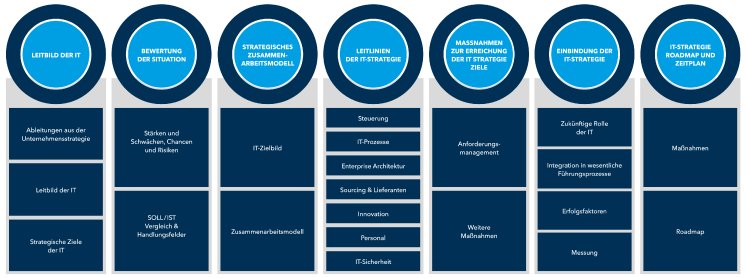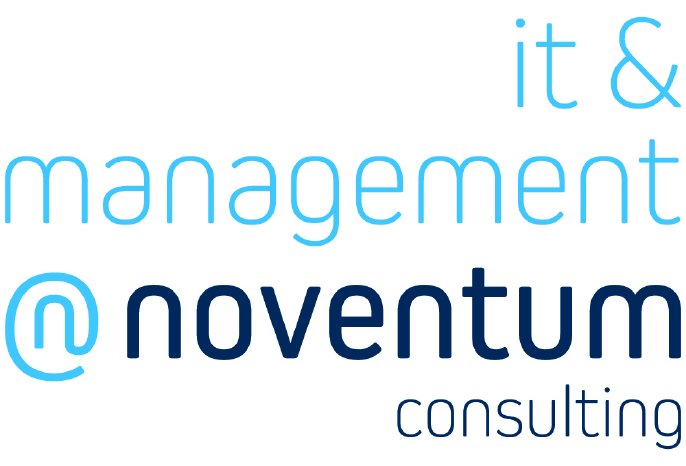The IT strategy defines the objectives and ensures that IT understands the company's business objectives and aligns itself with them. In this respect, the annual review of the IT strategy is a good opportunity to check whether IT is still prioritising the right things and aligning its skills and resources with the needs of the specialist departments and internal customers.
The premise of an IT strategy - if it is meant seriously and not just to fulfil internal compliance - is "How must IT position itself to best support the goals of the organisation/company?".
HOW MUST IT POSITION ITSELF IN ORDER TO BEST SUPPORT THE GOALS OF THE COMPANY/ORGANISATION?
In practice, an organisation's IT strategy is created or revised in an internal project, often for a multi-year period of 3 to 5 years. The IT strategy therefore takes effect over a longer period of time and works with assumptions and on the basis of facts and objectives that are relevant and current at the time of creation.
But, and this brings us to the key question, what benefits can an IT strategy have for a company that has opted for a scaling, agile IT organisation?
noventum consulting has carried out a large number of projects in the areas of "IT strategy" and "adaptive IT" with a consulting focus on CIO Advisory and shows in this article the benefits of an IT strategy for an Agile@Scale organisation.
An Agile@Scale organisation is a company that applies agile principles, mindsets and practices in all areas of its organisation. This means that agile methods are not only applied to teams and projects, but also to programmes, portfolios and the entire organisation.
AGILE ORGANISATIONS VALUE FLEXIBILITY
Agile organisations claim to be able to adapt quickly and flexibly to change. They are generally organised in a lean and efficient way and rely on agile methods and tools. They attach great importance to flexible collaboration and work in cross-functional teams to achieve results quickly and effectively and are constantly looking for ways to improve.
An agile organisation is very likely to have an agile IT organisation. There are a number of scaling agile models that companies use to scale their IT organisations. The best-known models include
- Scaled Agile Framework (SAFe®): SAFe is a comprehensive framework that helps companies to scale agile methods and practices to large organisations.
- Large Scale Scrum (LeSS): LeSS is a framework that scales Scrum to large teams and organisations.
- Spotify®: A model that doesn't want to be a framework at all; with a focus on autonomy, collaboration and the organisation of work
An agile mindset is a set of values and principles that help organisations and teams to embrace change and adapt to it effectively. It is crucial for fostering a culture of continuous learning, adaptability and innovation.
Applied to an organisation, "agile" means that the management and control of projects and processes is dynamic and flexible. Less planning and management intensity enables the rapid implementation of a project, a high degree of adaptability and a high degree of personal responsibility.
WHAT MAKES A GOOD IT STRATEGY?
In order to decide whether a classic IT strategy is of any use to an agile organisation, we look at the building blocks of an IT strategy and evaluate them from the perspective of an agile organisation.
Read on nc360°, the noventum info platform, the complete article and learn about:
- IT mission statement
- Assessment of the situation
- Strategic cooperation model
- IT strategy guidelines
- Measures to achieve the strategic goals
- Integration of the IT strategy
- IT strategy roadmap and schedule




